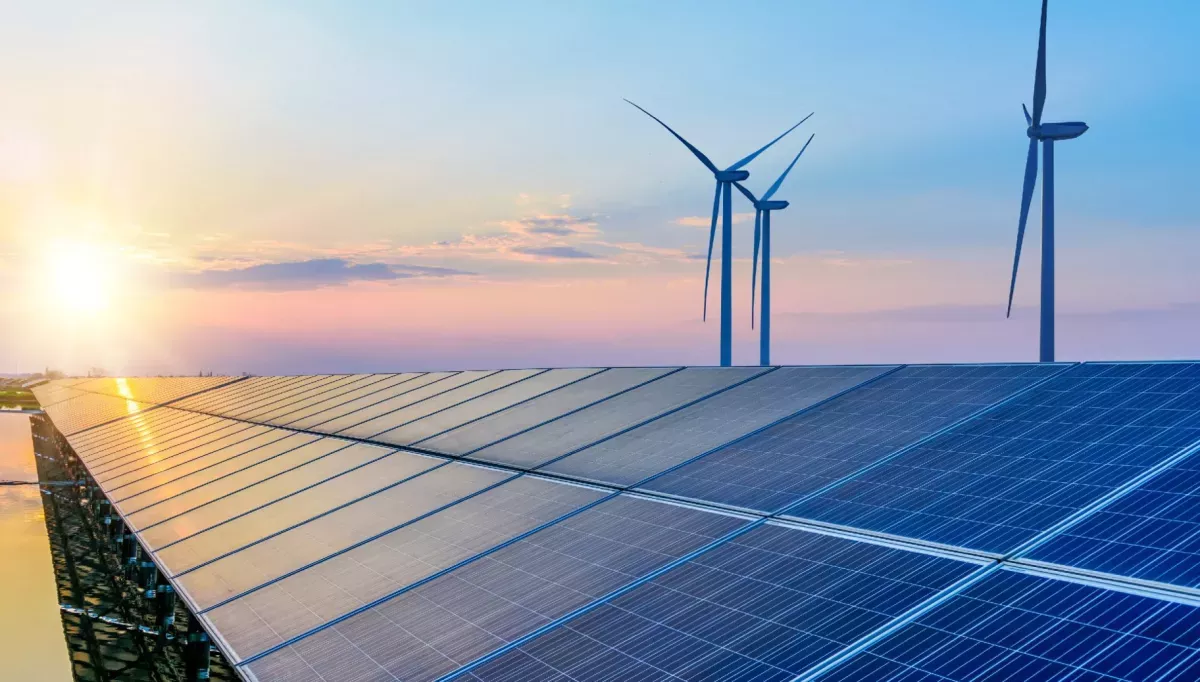Baltic focus of Baku New opportunities in green energy, digital economy, and logistics
In recent years, Azerbaijan has made significant progress in diversifying its trade and economic relations, attracting investors from European Union countries, and expanding its non-oil exports to the European market. The country is now focused on forging partnerships with EU nations to develop green energy, the digital economy, and logistics, as well as to implement joint projects in agriculture and industry. Northern Europe, with its advanced industrial base, presents particularly promising opportunities for cooperation. For example, during the recent Baku business forum “Central Baltic – Azerbaijan,” a practical roadmap was agreed upon with business representatives from Estonia, Latvia, and Finland.
Through the efforts of the Export and Investment Promotion Agency (AZPROMO) under Azerbaijan’s Ministry of Economy, as well as the country’s trade missions, significant progress has been made in expanding the presence of domestic agro-industrial, petrochemical, and other non-oil products in European markets. Around seven years ago, as part of promoting the national brand Made in Azerbaijan, AZPROMO launched Azerbaijani trade houses in Latvia and Poland. Building on this foundation, Azerbaijani products have since been actively promoted throughout the Baltic region. At the same time, Azerbaijan is keen to attract investment and advanced know-how, and to establish joint ventures and startups in collaboration with technologically advanced Baltic countries.
“The Baltic and Scandinavian countries are known for their innovative economies, sustainable industrial models, and advanced digital solutions. Azerbaijan, in turn, is the economic hub of the South Caucasus — a leader in energy, transport, logistics, and modern agriculture, offering new opportunities for cooperation,” said Ziya Hajili, Secretary-General of the National Confederation of Entrepreneurs Organizations of Azerbaijan (ASK), speaking at the Baku business forum “Central Baltic – Azerbaijan”, organised in the format of B2B meetings.
According to the ASK Secretary-General, the event marks a new phase in strengthening economic ties between Azerbaijan and the business circles of Latvia, Estonia, and Finland. The agreements signed during the forum are not merely symbolic; they represent a practical roadmap for long-term and institutional interaction between the business communities.
“We see real potential for cooperation in areas such as green energy and renewable technologies, knowledge and experience exchange, development of the digital economy and innovative ecosystems, including startups. Agriculture and the food industry are also promising sectors, where Azerbaijan has already achieved significant success,” emphasised Hajili.

The success of the Baku meetings is reflected in the signing of around a dozen memorandums of understanding during the business forum. These agreements include cooperation between the ASK and the Latvian Chamber of Commerce and Industry, Satakunta University of Applied Sciences, and the Estonian Embassy. Several documents were also signed between the Nordic Business Community Azerbaijan and its foreign partners. Notable partnerships include the Finnish company EnergiaVFX with Azerbaijan’s RogVFX, and Estonia’s Fleetguru with Azerbaijan’s Axiom.
Azerbaijan has long-standing and stable trade and economic ties with the Baltic countries. For example, Baku and Riga have participated for many years in EU-supported twinning projects, fostering business partnerships in agriculture, food processing, tourism, and transport logistics.
Cooperation with Estonia extends beyond agriculture and transport to the IT sector, including the development of software solutions for e-government and digital service portals. Notably, the Estonian company B.EST Solutions has played a key role in developing services such as ASAN Service and ASAN Imza.
Finally, cooperation with Finland, particularly in logistics and the supply of energy equipment for shipbuilding between 2005 and 2010, included capital-intensive projects with the company Wartsila, which oversaw the phased commissioning of seven modular power plants with a combined capacity of around 860 MW. These plants were built in Astara, Shaki, Khachmaz, Gusar, Nakhchivan, Baku, and at the Sangachal terminal.
According to Hajili, the Baku business forum and B2B meetings mark the beginning of a new phase in economic relations between Azerbaijan and the business communities of Latvia, Estonia, and Finland. Significant potential exists for joint initiatives in areas such as renewable energy, the digital economy, and the creation of an innovative ecosystem, including collaboration on startups. The ASK Secretary-General also highlighted transport and logistics as a key area of cooperation, emphasising the strategic role of the Middle Corridor and the Alat Free Economic Zone in connecting markets.
This interest is mutual, according to Latvian Ambassador to Azerbaijan, Edgars Skuja: “Azerbaijan, Latvia, Estonia, and Finland have signed memorandums on cooperation between business communities, and these documents demonstrate that work among entrepreneurs from all four countries is ongoing. We have a solid foundation for further interaction, and we intend to develop it further.” The ambassador also noted that during the next Azerbaijan–Latvia Intergovernmental Commission, new ideas will be discussed, and agreements will be concluded to expand bilateral business cooperation.

“Estonia is interested in participating in digital transformation and green projects: many Estonian companies are already actively operating in Azerbaijan in the field of digital services, including digital identification built on Estonian technologies,” said Vaino Reinart, Estonian Ambassador to Azerbaijan, on the sidelines of the business forum. “Tallinn also supports the development of transport corridors between East and West, including the Middle Corridor passing through Azerbaijan.”
Meanwhile, Estonian expert Sven Sester, a participant in the Baku business meeting, emphasised that the normalisation of relations between Azerbaijan and Armenia is creating a new dynamic for the development of logistics and investment, opening enormous opportunities for the entire region. According to the expert, currently about 95% of Azerbaijan’s exports to Estonia consist of mineral fuels, while Estonian imports to Azerbaijan are primarily agricultural products, including 10% in the form of breeding livestock. “However, one of Estonia’s strengths remains information technology and e-governance systems, which could become a promising area for cooperation with Azerbaijan.”
Finland is also interested in cooperating with Azerbaijan in the fields of renewable energy, energy-efficient technologies, as well as transport and logistics. “I have spoken with many Finnish entrepreneurs, and they all note that the three countries of the South Caucasus are individually too small as markets, but if the region is considered together with Türkiye, there is already significant potential. And if Central Asian countries are also involved, the prospects become even broader — this is precisely the purpose of the EU’s connectivity programs,” said Kirsti Narinen, Finnish Ambassador to the South Caucasus, during the forum.
According to the diplomat, Finnish companies possess advanced technologies in energy efficiency and renewable energy, which opens new opportunities for cooperation with Azerbaijani partners.








